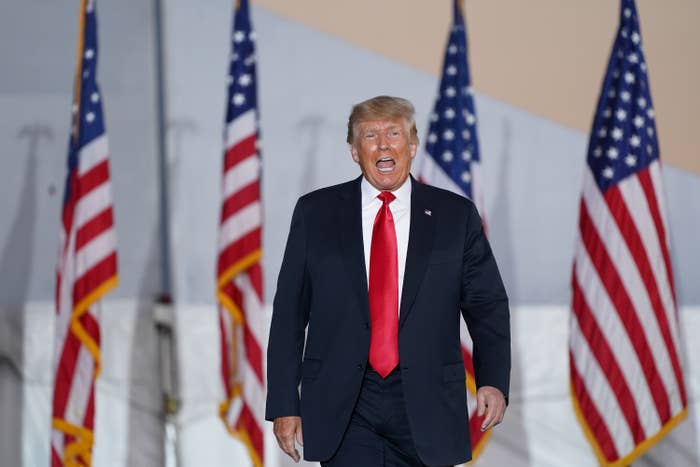
WASHINGTON — Former president Donald Trump on Thursday lost the latest stage of his fight to stop the congressional committee investigating the Jan. 6 attack on the US Capitol from getting his archived White House records.
The US Court of Appeals for the DC Circuit, in a 3-0 decision, rejected Trump’s attempt at challenging President Joe Biden’s decision not to back his predecessor’s claim of executive privilege over certain categories of documents that the Jan. 6 committee requested from the National Archives.
“On the record before us, former President Trump has provided no basis for this court to override President Biden’s judgment and the agreement and accommodations worked out between the Political Branches over these documents,” Judge Patricia Millett wrote. “Both Branches agree that there is a unique legislative need for these documents and that they are directly relevant to the Committee’s inquiry into an attack on the Legislative Branch and its constitutional role in the peaceful transfer of power.”
Thursday’s decision does not mean that the committee will immediately get the documents at issue, however. The court agreed to give Trump 14 days to petition the US Supreme Court to step in on his behalf. During arguments before the circuit panel on Nov. 30, Trump’s attorney Justin Clark told the judges that they would try to take the case up to the Supreme Court if they lost.
Millett wrote that Trump had failed on all fronts to convince the court that he was likely to win the case, offering five primary reasons: Biden’s “carefully reasoned and cabined” decision that asserting executive privilege wasn’t in the country’s interest; Congress’s “uniquely vital interest” in studying the Jan. 6 attack; the relevance of Trump’s records to the committee’s work; the fact that there was no other way for the committee to get the information that was in those documents; and, finally, Trump’s “failure even to allege, let alone demonstrate” some specific harm that he’d suffer from the disclosure of the records at issue to the committee.
The judge concluded by invoking the words of Benjamin Franklin — “that we have ‘[a] Republic’ — ‘if [we] can keep it,’” — and that the “events of January 6th exposed the fragility of those democratic institutions and traditions that we had perhaps come to take for granted.
“In response, the President of the United States and Congress have each made the judgment that access to this subset of presidential communication records is necessary to address a matter of great constitutional moment for the Republic,” Millett wrote. “Former President Trump has given this court no legal reason to cast aside President Biden’s assessment of the Executive Branch interests at stake, or to create a separation of powers conflict that the Political Branches have avoided.”
Arguments had not gone well from Trump, with all three members of the panel signaling that they were skeptical of the case made by his lawyers that a former president should have wide discretion to take their successor to court over decisions about when to assert executive privilege.
Trump’s legal efforts have succeeded in delaying the production of documents to the committee. National Archives officials were due to turn over the records nearly a month ago, on Nov. 12. After Trump lost the first round of the fight before a federal district judge in Washington, the DC Circuit agreed to enter a temporary injunction blocking the committee from getting the documents while Trump pursued an appeal.
The DC Circuit’s ruling against him buys him at least another two weeks. If he does file a motion asking the Supreme Court to enter its own order halting the production of documents, the circuit’s injunction will remain in effect until the justices decide what to do.
Millett added in a footnote that because Trump couldn’t win this case, the court didn’t need to reach the stickier question that the judges had grappled with during arguments of when a court could “second-guess” a president’s decision not to invoke executive privilege when it came to a congressional investigation.

